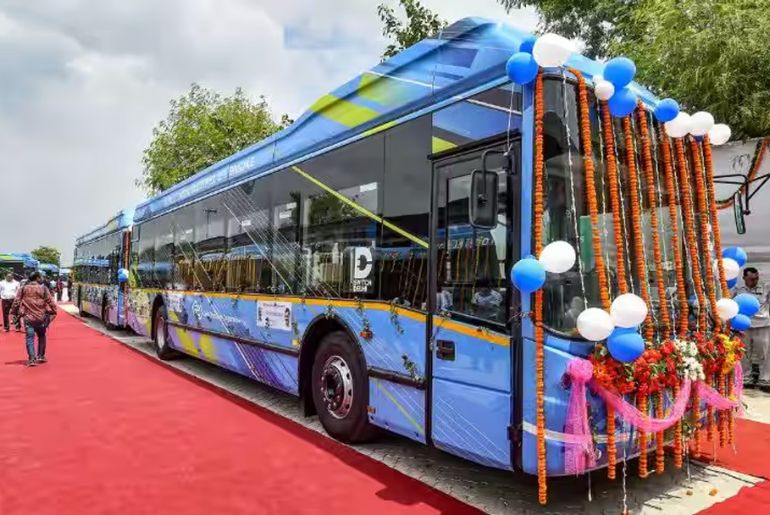The Delhi government has significantly accelerated its shift toward clean public transportation, announcing that 1,400 new electric buses have been introduced across the city within just eight months. Chief Minister Rekha Gupta shared the update while inaugurating the newly modernized Azadpur DTC terminal, where she also flagged off 40 additional electric buses as part of the city’s expanding green mobility fleet.
Speaking at the event, the Chief Minister Rekha Gupta emphasized that the current administration has strengthened Delhi’s electric bus ecosystem at a pace far quicker than previous governments. She highlighted that while 1,400 buses were added in under a year, earlier regimes added only around 2,000 buses over more than a decade. The rapid deployment reflects Delhi’s strategy to reduce urban pollution and improve commuter convenience through large-scale electric mobility adoption.
The upgraded Azadpur terminal, designed to enhance passenger experience, features a range of modern amenities such as shaded platforms, CCTV surveillance, solar installations, baby-feeding rooms, lockers, and improved accessibility. According to Transport Minister Pankaj Kumar Singh, the terminal can support 72 bus movements per hour during peak times and accommodate 116 buses operating on 21 key routes—a majority of them electric.
The government stated that the addition of new e-buses will improve service reliability, reduce emissions, and strengthen Delhi’s commitment to sustainable urban transport. The new buses are equipped with advanced safety systems, GPS-based tracking, real-time passenger information, and low-floor accessibility to ensure a safe and comfortable commute.
Delhi’s expanding fleet is part of a broader plan to transition to a fully electric public bus system in the coming years. With this major rollout, the city has taken a substantial step toward building a cleaner, more efficient, and future-ready public transport network.

